 W
WJonas Basanavičius was an activist and proponent of the Lithuanian National Revival. He participated in every major event leading to the independent Lithuanian state and is often given the informal honorific title of the "Patriarch of the Nation" for his contributions.
 W
WJan Niecisław Ignacy Baudouin de Courtenay was a Polish linguist and Slavist, best known for his theory of the phoneme and phonetic alternations.
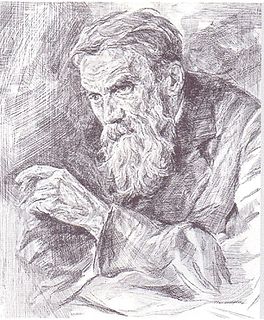 W
WAdalbert Bezzenberger was a German philologist. He was born at Kassel and died at Königsberg. He is considered to be the founder of Baltic philology.
 W
WPeter von Bohlen was a German Orientalist and Indologist. He was a professor at the University of Königsberg.
 W
WFranz Bopp was a German linguist known for extensive and pioneering comparative work on Indo-European languages.
 W
WKazimieras Būga was a Lithuanian linguist and philologist. He was a professor of linguistics, who mainly worked on the Lithuanian language.
 W
WBhashacharya Acharya Suniti Kumar Chatterjee was an Indian linguist, educationist and litterateur. He has coined the name of the State, Meghalaya carved out from Assam in 1972. He was a recipient of the second-highest Indian civilian honour of Padma Vibhushan.
 W
WMikalojus Daukša was a Lithuanian and Latin religious writer, translator and a Catholic church official. He is best known as the first among Lithuania's humanists to underline the need to codify and promote the Lithuanian language over Chancery Ruthenian and Polish, which were in use in the Grand Duchy at the time. Daukša's Lithuanian translation of Jacob Ledesma's catechism became the first book in Lithuanian to be published in the Grand Duchy of Lithuania.
 W
WMarija Gimbutas was a Lithuanian archaeologist and anthropologist known for her research into the Neolithic and Bronze Age cultures of "Old Europe" and for her Kurgan hypothesis, which located the Proto-Indo-European homeland in the Pontic Steppe.
 W
WChristoph Hartknoch (1644–1687) was a Prussian historian and educator.
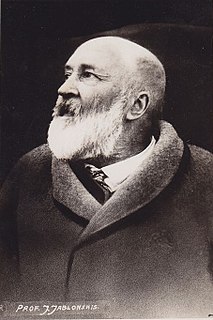 W
WJonas Jablonskis was a distinguished Lithuanian linguist and one of the founders of the standard Lithuanian language. He used the pseudonym Rygiškių Jonas, taken from the small town named Rygiškiai where he spent his childhood.
 W
WKazimieras Jaunius (1848–1908) was a Lithuanian Catholic priest and linguist. While Jaunius published very little, his major achievements include a well regarded Lithuanian grammar, systematization and classification of the Lithuanian dialects, and descriptions of Lithuanian accentuation. Though most of his conclusions on etymology and comparative linguistics were proven to be incorrect, his works remain valuable for vast observational data.
 W
WAntanas Juška was a Lithuanian Roman Catholic priest known for his lifelong study of Lithuanian folk traditions. For about three decades, he observed the Lithuanian people, their traditions, and recorded their songs and vocabulary. Juška recorded about 7,000 Lithuanian folk songs, including about 2,000 songs with melodies, and wrote a 70,000-word Lithuanian–Polish dictionary. These works provide a wealth of information of the 19th-century Lithuanian life. His works were partially published with the help of his elder brother Jonas Juška.
 W
WJonas Juška (1815–1886) was a Lithuanian teacher and linguist. He studied the Lithuanian language and worked on publishing works by his brother the Catholic priest Antanas Juška.
 W
WLothar Kilian was a German archaeologist and linguist who researched Balts, Germanic peoples and the Proto-Indo-European homeland.
 W
WHans Krahe was a German philologist and linguist, specializing over many decades in the Illyrian languages. He was born at Gelsenkirchen.
 W
WWinfred Philip Lehmann was an American linguist who specialized in historical, Germanic, and Indo-European linguistics. He was for many years a professor and head of departments for linguistics at the University of Texas at Austin, and served as president of both the Linguistic Society of America and the Modern Language Association. Lehmann was also a pioneer in machine translation. He lectured a large number of future scholars at Austin, and was the author of several influential works on linguistics.
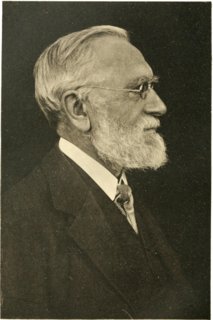 W
WAugust Leskien was a German linguist active in the field of comparative linguistics, particularly relating to the Baltic and Slavic languages.
 W
WWilhelm Mannhardt was a German mythologist and folklorist. He is known for his work on Germanic mythology, on Baltic mythology, and other pre-Christian European pantheons; and for his championing of the solar theory, namely in the early years of his career, under the influence of Jakob Grimm. Later on, Mannhardt focused more on vegetation spirits from an evolutionist point of view, namely the primitive tree cult and its later developments.
 W
WPaul Jules Antoine Meillet was one of the most important French linguists of the early 20th century. He began his studies at the Sorbonne University, where he was influenced by Michel Bréal, Ferdinand de Saussure and the members of the L'Année Sociologique. In 1890, he was part of a research trip to the Caucasus, where he studied the Armenian language. After his return, de Saussure had gone back to Geneva so he continued the series of lectures on comparative linguistics that the Swiss linguist had given.
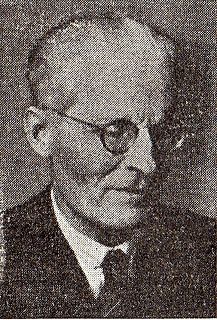 W
WJooseppi Julius Mikkola, was Finnish linguist and professor. Mikkola is regarded as one of the most important Finnish linguists of Slavic languages of his era.
 W
WKārlis Mīlenbahs was the first native speaker of Latvian to devote his career to linguistics. Mīlenbahs studied classical philology at the University of Dorpat. He was the author of over a hundred scholarly articles on the language in Latvian, Russian, and German, but his main achievement was the Latvian-German dictionary that remains the most important lexicographical work on Latvian. His polemics with the poet Rainis led to an important essay on literary Latvian published in 1909, and he was also a translator of the Odyssey (1890–95).
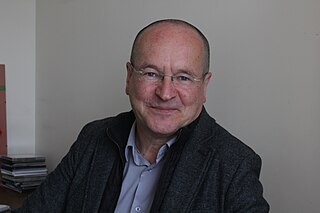 W
WValdis Muktupāvels is a Latvian ethnomusicologist, composer, musician, teacher and doctor of art criticism.
 W
WEdgar Ghislain Charles Polomé was a Belgian-born American philologist and religious studies scholar. He specialized in Germanic and Indo-European studies and was active at the University of Texas at Austin for much of his career.
 W
WRasmus Kristian Rask was a Danish linguist and philologist. He wrote several grammars and worked on comparative phonology and morphology. Rask traveled extensively to study languages, first to Iceland, where he wrote the first grammar of Icelandic, and later to Russia, Persia, India, and Ceylon. Shortly before his death, he was hired as professor of Eastern languages at the University of Copenhagen. Rask is especially known for his contributions to comparative linguistics, including an early formulation of what would later be known as Grimm's Law. He was elected as a member to the American Philosophical Society in 1829.
 W
WMartin Ludwig Jedemin Rhesa was a consistorial councillor of the Evangelical Church in Prussia and a professor at the University of Königsberg in East Prussia.
 W
WPhilipp Ruhig was a Lithuanian Lutheran priest from East Prussia mostly known as a philosopher and philologist, an early expert in Lithuanian language.
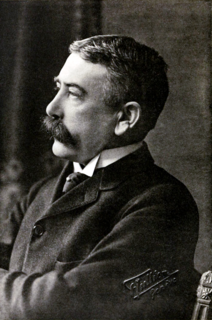 W
WFerdinand de Saussure was a Swiss linguist, semiotician and philosopher. His ideas laid a foundation for many significant developments in both linguistics and semiotics in the 20th century. He is widely considered one of the founders of 20th-century linguistics and one of two major founders of semiotics, or semiology, as Saussure called it.
 W
WAugust Schleicher was a German linguist. His great work was A Compendium of the Comparative Grammar of the Indo-European Languages in which he attempted to reconstruct the Proto-Indo-European language. To show how Indo-European might have looked, he created a short tale, Schleicher's fable, to exemplify the reconstructed vocabulary and aspects of Indo-European society inferred from it.
 W
WAlfred Erich Senn was a professor of history at the University of Wisconsin–Madison.
 W
WKonstantinas Sirvydas was a Lithuanian religious preacher, lexicographer and one of the pioneers of Lithuanian literature from the Grand Duchy of Lithuania, at the time a confederal part of the Polish–Lithuanian Commonwealth. He was a Jesuit priest, a professor at the Academia Vilnensis and the author of, among other works, the first grammar of the Lithuanian language and the first tri-lingual dictionary in Lithuanian, Latin and Polish (1619). Famous for his eloquence, Sirvydas spent 10 years of his life preaching sermons at St. Johns' Church in Vilnius.
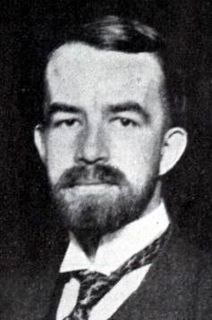 W
WChristian Schweigaard Stang was a Norwegian linguist, Slavicist and Balticist, professor in Balto-Slavic languages at the University of Oslo from 1938 until shortly before his death. He specialized in the study of Lithuanian and was highly regarded in Lithuania.
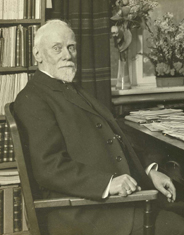 W
WVilhelm Ludwig Peter Thomsen was a Danish linguist and Turkologist. He successfully deciphered the Orkhon inscriptions which were discovered during the expedition of Nikolai Yadrintsev in 1889.
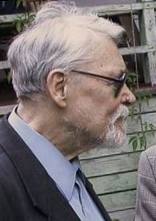 W
WVladimir Nikolayevich Toporov was a leading Russian philologist associated with the Tartu-Moscow semiotic school. His wife was Tatyana Elizarenkova.
 W
WEduards Volters (1856–1941) was a linguist, ethnographer, archaeologist who studied the Baltic languages and culture. He was a long-time professor at the Saint Petersburg University (1886–1918) and Vytautas Magnus University (1922–1934).
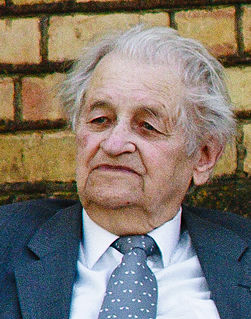 W
WZigmas Zinkevičius was a leading Lithuanian linguist-historian, professor at Vilnius University, and a full member of the Lithuanian Academy of Sciences. He has contributed to studies in the history of languages, onomastics and other areas. Zinkevičius was a recipient of the Herder Prize, which was presented to him in 1994. Zinkevičius is the author of 30 academic books and several hundred scientific publications in various languages.